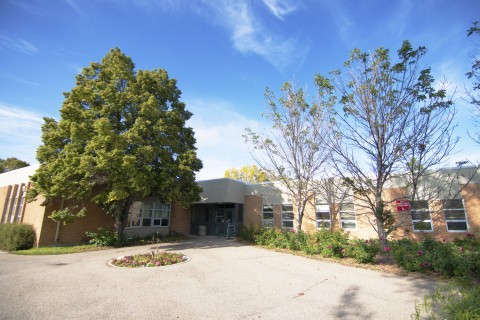For the past 16 months, I have worked as an intern for the University of Saskatchewan’s Office of Sustainability. Throughout my time in this position, I have witnessed what I perceive as a lack of support and respect that the university administration shows for sustainability and for the people who are working to promote it.
USOS is a group of dedicated staff members who strive to bring about positive change, not only at our university but throughout our community. USOS provides three major services — sustainability consultation, emissions measurement and management, and sustainability programming.

The Office of Sustainability at the University of Saskatchewan.
In 2004, Margret Asmuss began leading the sustainability movement on campus in her role as the sustainability
co-ordinator. As her team grew, it became known as USOS. The team changed suddenly, however, when Asmuss’s position was eliminated in June 2018.
For those of us who still worked for USOS, this moment exposed what felt like a sense of apathy directed towards sustainability and those who support it, despite what the university has claimed in its mission statements and strategic plans.
I began working at USOS in May 2017. In the months that followed, it appeared to me that we were being excluded from important conversations and decisions. This would be a strange strategy, if true, as without the input from someone at USOS, any decision regarding sustainability would be ill-informed.
The formation of the President’s Sustainability Council, something that should have been a show of support for sustainability on behalf of the university, proved only to reinforce our feelings of voicelessness.
The council’s mandate seems unclear, and its organization appears unstructured, meaning members might not have enough guidance or practical experience to be effective. Instead, I would argue that the council’s existence creates a greater roadblock to senior leadership, often halting or slowing the progress of sustainability on campus.
Earlier this year, a new energy and emissions officer — a USOS team position — was hired following the retirement of the previous officer in 2017. When the new officer started work in June, we were informed that he would not be sitting with the rest of our team in our collaborative office space.
While we were glad that this position would continue to exist, the move away from the core office created a disconnect in the process of measuring, managing and reporting emissions on campus, which is a crucial part of the Sustainability Tracking, Assessment and Rating System, or STARS. In January 2017, the university achieved a STARS silver rating, but without an energy and emissions officer as an active part of our team, the hope of improving this rating was dismal.
At this point, I and other members of USOS suspected that, with two of our three main services no longer functioning as they had been, Asmuss’s position wasn’t as secure as it once was.
Upon arriving at work on a Monday towards the end of June, I learned from my supervisor that Asmuss no longer worked for USOS and was told that she had been escorted out of the building that morning. It appeared to me that, after almost 15 years of dedication and service to her campus and her community, she was treated with no more respect than a disgruntled intern caught stealing office supplies.
With the shadow of fear for the security of my job and the perceived lack of support for sustainability from the university administration, I left my once-loved position as an intern at the Office of Sustainability. With convocation on the horizon for me, I will be searching for an institution or organization that shows a greater understanding of the importance of sustainability.
—
Sydney Boulton
Photo: Riley Deacon / Photo Editor
Leave a Reply